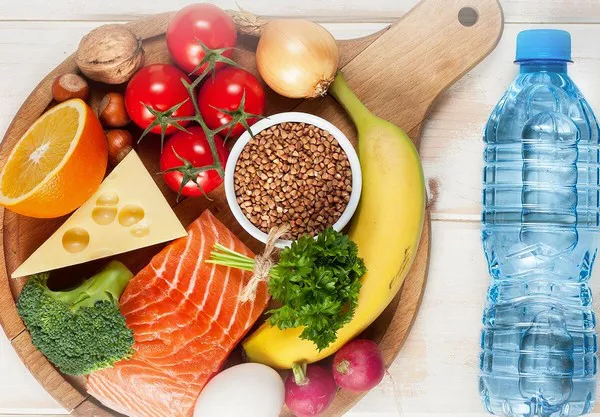Protein is an essential macronutrient that plays a crucial role in maintaining various bodily functions. It serves as the building block for tissues, enzymes, hormones, and immune system components. Inadequate protein intake can lead to a range of negative health consequences, impacting both physical and mental well-being. This article delves into the potential outcomes of not consuming enough protein and discusses recommended intake, sources of protein, and strategies to ensure a balanced diet.
Protein’s Role in the Body
Proteins are composed of amino acids, which are essential for the repair and growth of tissues. The body uses these amino acids to build and maintain muscles, organs, skin, hair, and nails. Enzymes, which are vital for various biochemical reactions, are also made from protein. Hormones that regulate metabolism, immune responses, and other physiological processes rely on protein for their production. Furthermore, antibodies, which are crucial for immune defense, are comprised of amino acids.
Consequences of Inadequate Protein Intake
Inadequate protein intake can lead to various consequences:
1. Muscle Loss and Weakness
One of the primary outcomes of not consuming enough protein is muscle loss. Since muscles are primarily composed of protein, a deficiency can lead to muscle atrophy and weakness. This can negatively impact overall physical strength and endurance, potentially making daily activities challenging.
2. Impaired Immune Function
Protein is necessary for the production of antibodies and immune system cells. Inadequate protein intake can compromise the body’s ability to fight infections and diseases, leaving individuals more susceptible to illnesses.
3. Delayed Wound Healing
Protein plays a vital role in tissue repair, including the healing of wounds. Without sufficient protein, the body’s ability to regenerate damaged tissues and heal wounds can be significantly compromised.
4. Hair, Skin, and Nail Issues
A lack of protein can lead to brittle hair, dull skin, and weakened nails. These external signs of inadequate protein intake highlight the nutrient’s importance for maintaining healthy physical appearance.
5. Edema and Fluid Imbalance
Protein helps maintain the balance of fluids in the body’s cells and tissues. Inadequate protein intake can disrupt this balance, potentially leading to edema – the accumulation of excess fluid in body cavities or tissues.
6. Fatigue and Low Energy Levels
Protein is an energy source, especially when carbohydrate intake is insufficient. In the absence of adequate carbohydrates and proteins, the body might start breaking down muscle tissue for energy, resulting in fatigue and reduced energy levels.
7. Changes in Mood and Mental Function
Amino acids derived from protein are essential precursors for neurotransmitters that regulate mood and cognitive function. Inadequate protein intake may lead to mood swings, difficulty concentrating, and other cognitive issues.
Recommended Protein Intake and Sources
The recommended daily intake of protein varies based on factors such as age, sex, physical activity level, and overall health goals. Generally, the Dietary Reference Intake (DRI) suggests that adults aim for 0.8 grams of protein per kilogram of body weight per day. However, athletes, pregnant or lactating individuals, and those recovering from illnesses or surgeries may require higher amounts. For detailed suggestions, please check out How Much Protein Should I Eat a Day? A Comprehensive Guide.
Protein Sources in Daily Diet
Diversifying protein sources is essential to ensure the intake of essential amino acids. Animal sources like lean meats, poultry, fish, eggs, and dairy products provide complete proteins that contain all essential amino acids. Plant-based sources such as legumes, nuts, seeds, tofu, and whole grains can be combined to create complete protein profiles.
Here are different types of protein sources you can use in your daily life:
1. Lean Meats: Lean meats such as chicken, turkey, and lean cuts of beef or pork are excellent sources of high-quality protein. They provide essential nutrients like iron and zinc as well.
2. Fish: Fish, especially fatty fish like salmon, trout, and mackerel, not only offer protein but also provide heart-healthy omega-3 fatty acids. These fatty acids have numerous health benefits, including supporting brain health and reducing inflammation.
3. Eggs: Eggs are a versatile and nutrient-dense protein source. They contain all nine essential amino acids and are rich in vitamins, minerals, and antioxidants. Enjoy them boiled, scrambled, or as an omelette.
4. Dairy Products: Dairy products like Greek yogurt, cottage cheese, and milk are high in protein and calcium. They also contain probiotics that support gut health.
5. Legumes: Legumes include beans (black beans, kidney beans, chickpeas), lentils, and peas. They are plant-based sources of protein and fiber, making them great for heart health and digestion.
6. Nuts and Seeds: Nuts (almonds, walnuts, cashews) and seeds (chia seeds, flaxseeds, pumpkin seeds) are not only protein-rich but also provide healthy fats and essential nutrients.
7. Tofu and Tempeh: Tofu and tempeh are plant-based protein sources often used in vegetarian and vegan diets. They can be used in a variety of dishes, absorbing flavors well.
8. Quinoa: Quinoa is a pseudograin that contains all essential amino acids, making it a complete protein source. It’s also rich in fiber, vitamins, and minerals.
9. Seitan: Seitan, also known as wheat gluten, is a protein-rich meat substitute often used in vegetarian and vegan cooking.
10. Dairy Alternatives: Plant-based milk alternatives like almond milk, soy milk, and oat milk can be fortified with protein and vitamins, providing options for those with lactose intolerance or dietary preferences.
11. Edamame: Edamame are young soybeans that can be enjoyed as a snack or added to salads and stir-fries. They are rich in protein, fiber, and antioxidants.
12. Chicken and Turkey: These poultry options are not only high in protein but also lean choices, making them suitable for those looking to manage their fat intake.
13. Cottage Cheese: Cottage cheese is a dairy product that’s high in protein and low in fat. It can be enjoyed on its own, mixed with fruit, or used as a topping.
14. Greek Yogurt: Greek yogurt is a thick and creamy yogurt that’s packed with protein. It’s also a source of probiotics, which are beneficial for gut health.
15. Whey Protein: Whey protein supplements can be easily added to smoothies or other dishes to increase protein intake, especially for individuals with higher protein needs or active lifestyles.
[inline_related_posts title=”SEE ALSO” title_align=”left” style=”list” number=”3″ align=”none” ids=”1291,1402,1400″ by=”categories” orderby=”rand” order=”DESC” hide_thumb=”no” thumb_right=”no” views=”no” date=”yes” grid_columns=”1″ post_type=”” tax=””]
Strategies for Meeting Protein Needs
Follow some strategies can help you effectively meet protein needs:
1. Balanced Diet Planning
Incorporating a variety of protein-rich foods into meals can help meet daily requirements. Combining different protein sources, both animal and plant-based, can enhance the nutritional quality of the diet.
SEE ALSO: How Much Protein Can the Body Absorb in One Meal? Everything You Want to Know
2. Regular Snacking
Consuming protein-rich snacks like Greek yogurt, nuts, or hummus throughout the day can help distribute protein intake more evenly and prevent large gaps between meals.
3. Supplementation
In some cases, protein supplementation may be necessary, especially for individuals with higher protein requirements or those who struggle to meet their needs through whole foods alone. Consulting a healthcare professional before using protein supplements is recommended.
4. Consideration of Dietary Restrictions
People following vegetarian or vegan diets should pay close attention to their protein intake to ensure they are obtaining all essential amino acids. Combining different plant-based protein sources can help achieve this goal.
Conclusion
Protein is a fundamental nutrient that plays a pivotal role in maintaining overall health and well-being. A deficiency in protein intake can lead to a range of negative consequences, including muscle loss, impaired immune function, delayed wound healing, and fatigue. Understanding the importance of protein and incorporating a balanced variety of protein sources into the diet are essential steps towards promoting optimal health. By meeting protein requirements, individuals can support their body’s ability to function properly and lead an active and fulfilling life.
FAQs
1. How can I calculate my protein intake?
To calculate your protein intake, multiply your body weight in kilograms by the recommended protein intake (around 0.8 grams per kilogram). This will give you a general estimate of the grams of protein you should aim for daily.
2. Can I get enough protein on a vegetarian or vegan diet?
Yes, it is possible to meet protein needs on a vegetarian or vegan diet by carefully selecting and combining different plant-based protein sources. Ensuring a variety of protein-rich foods can help provide all essential amino acids.
3. Can I consume too much protein?
While protein is essential, excessive intake may lead to health issues like kidney strain, gastrointestinal discomfort, and an increased risk of certain chronic diseases. Moderation is key, and consulting a healthcare professional can provide personalized guidance.
4. Are protein supplements necessary?
Protein supplements can be helpful for individuals with specific dietary needs or those who struggle to meet their protein requirements through whole foods alone. However, it’s best to consult a healthcare professional before incorporating supplements into your diet.
5. Can I rely solely on protein for energy?
While protein can provide energy, it is not the body’s primary source. Carbohydrates and fats are also important for energy production. In cases where carbohydrate intake is insufficient, the body may utilize protein as an energy source, potentially leading to muscle breakdown.
6. Can inadequate protein intake affect my mental health?
Yes, inadequate protein intake can impact mood and cognitive function. Amino acids from protein are essential for the production of neurotransmitters that regulate mood. Insufficient protein may lead to mood swings, difficulty concentrating, and other cognitive issues.
7. How can I ensure I’m getting enough protein?
Planning balanced meals that include a variety of protein-rich foods is essential. Regular snacking with protein-rich options and being mindful of dietary restrictions, such as vegetarian or vegan diets, can help you meet your protein needs.
8. Are there any specific protein requirements for older adults?
Older adults may have higher protein needs to support muscle maintenance and prevent age-related muscle loss. Consulting a healthcare professional or a registered dietitian can provide personalized recommendations based on individual health and activity level.
9. Can children have protein deficiencies?
Yes, children can experience protein deficiencies, which can affect growth and development. It’s important for parents to ensure their children have a balanced diet that includes sufficient protein-rich foods.
10. Can I build muscle without consuming large amounts of protein?
While protein is essential for muscle growth, excessive intake is not necessarily required. Engaging in regular strength training exercises and consuming a balanced diet with adequate protein can support muscle development.
[inline_related_posts title=”Related Topics” title_align=”left” style=”list” number=”3″ align=”none” ids=”1402,1340,1257″ by=”categories” orderby=”rand” order=”DESC” hide_thumb=”no” thumb_right=”no” views=”no” date=”yes” grid_columns=”1″ post_type=”” tax=””]


































